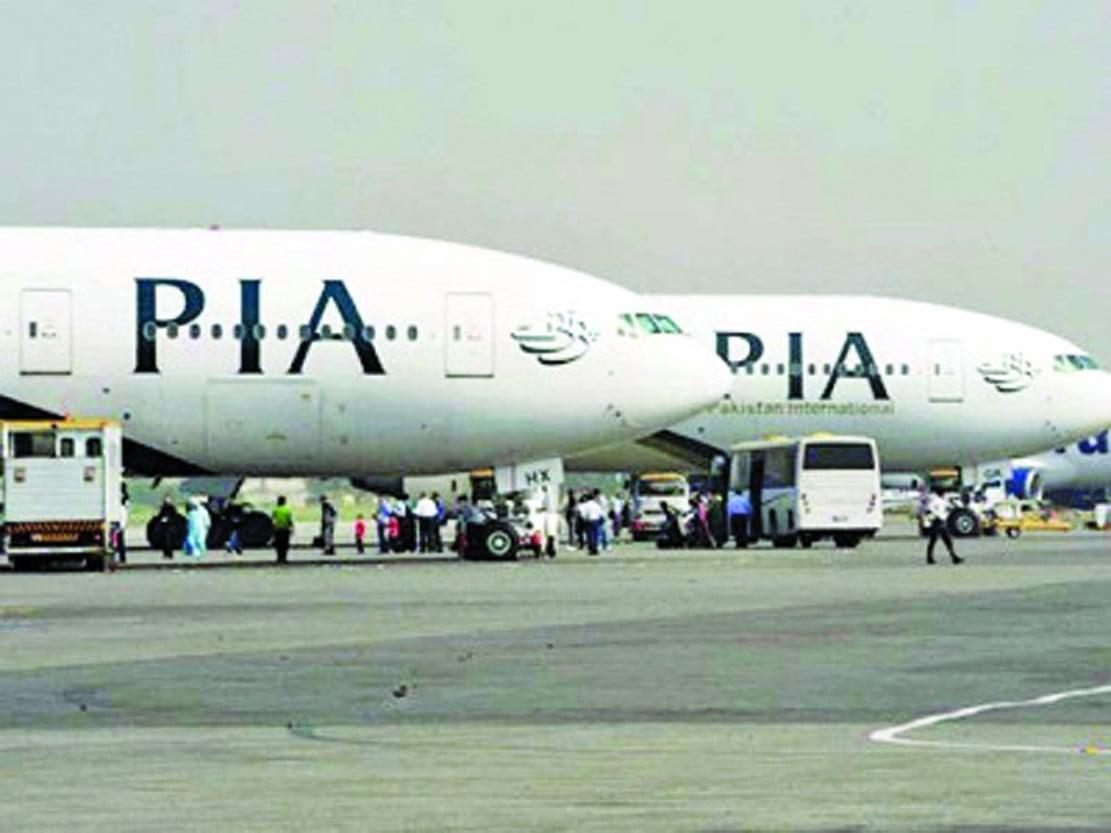Islamabad:
The federal government has approved a progressive privatization plan for 24 companies (public companies), notably Pakistan International Airlines (PIA), First Women Bank and several key power institutions.
This was shared with the National Assembly by the parliamentary secretary for privatization Aasia Ishaca Siddiqui on Monday.
Speaking during questions, she said that the Cabinet Committee on privatization (CCOP), during her meeting held on August 2, 2024, gave the green light for the multi-year plan, which will be implemented in three phases in the next five years.
She said that phase I will be completed within one year, phase II in one to three years and phase III in three to five years.
The entities listed under phase I PIA, First Women Bank, House Building Finance Corporation, Zarai Taraqiati Bank, Pakistan Engineering Company (Peco), Islamabad Electric Supply Company (IESCO), Gujranwala Electric Power Company (GEPCO) Supply Company (FESCO) and Sindh Engineering Limited.
She also informed the Chamber that Phase II will see the privatization of the State Life Insurance Corporation, Pakistan Reassurance Company, Central Power Generation Company, Jamshoro Power Company, Northern Power Generation Company and Lakhra Power Generation Company.
In addition, phase II includes Lahore Electric Supply Company (Lesco), Multan Electric Power Company (MEPCO), Hazara Electric Supply Company, Hyderabad Electric Supply Company, Peshawar Electric Supply Company and Sukkur Electric Company.
Phase III, she added, will include the privatization of the postal life insurance company.
Na praised the response of the soldiers
Earlier, the Na unanimously adopted a resolution welcoming the armed forces for their exceptional professionalism, vigilance and bravery in the defense of Pakistan’s sovereignty.
The resolution, moved by the Federal Minister of Law and Judge Azam Nazeer Tarar, congratulated the armed forces for their professionalism, their exemplary vigilance and their courage to respond to the Indian aggression not caused with exceptional restraint and responsibility and by a measured and appropriate response.
He said that the nation pushes the head of humility before the Almighty for having granted the Pakistani nation the dignity and the honor of defending the territorial integrity of the fatherland against the Indian naked aggression.
The resolution congratulated the whole nation, declaring that it had increased especially the differences and was united behind its leadership through the political spectrum in one voice – Pakistan.
Rich tributes have been paid to the brave martyrs who put their lives in defense of the fatherland, the chamber recognizing their supreme sacrifice as a symbol of national pride, resilience and unity.
The resolution also expressed its gratitude to friendly countries for their support at the critical moment.
By reaffirming Pakistan’s commitment to regional and global peace with dignity and honor, the Chamber stresses that democracies are engaged in dialogue, not on the conflict and stressed that long -term stability in South Asia could only be carried out by sincere and structured negotiations.
He urged the authorities to actively initiate the international community for a resolution to the dispute of Jammu-et-Cachemire in accordance with the aspirations of the Kashmir people and the relevant resolutions of the United Nations Security Council.
He also underlined the complete implementation of the Industry Water Treaty, claiming that the safeguarding of Pakistan water rights is an essential element of national security.
The house has reaffirmed its commitment to play its constitutional role in the protection of national interests and the promotion of peace, unity and security for the people of Pakistan.
Na adopts the Stza amendment bill; Technological reforms in progress
Later in the session, the Na adopted the bill on the Special Technology Authority zones (amendment), 2025, with a majority vote.
Federal Minister of Law Azam Nazeer Tarar, who presented the bill, said that changes were to improve the performance of the Special Technology Authority areas (STZA).
The revised law aims to strengthen regulatory structures, attract greater investment and promote innovation in Pakistan’s special technological areas.
These areas are intended to stimulate the country’s technological sector by providing a support environment for local and international businesses, contributing to long -term economic transformation.
In addition, seven reports of various parliamentary committees were presented, while five new bills were referred to the committees concerned for examination.
Meanwhile, the Minister of Petroleum, Ali Perviz Malik, filed the levy off the grid (Power Patives) order, 2025 before NA, in accordance with article (2) of article 89 of the Constitution.
With application entry




